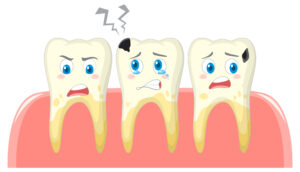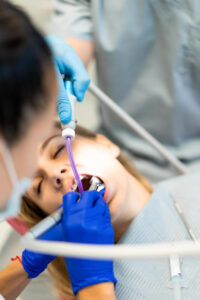
Jaw Deformity Correction Orthognathic
What is Jaw Deformity Correction (Orthognathic Surgery)?
Jaw deformity correction, also known as orthognathic surgery, is a procedure used to realign the jaw and correct skeletal irregularities. This surgery is designed to improve both the function and appearance of the mouth, teeth, and jaw. It is often recommended for patients with misaligned jaws, difficulty in chewing, speaking, or breathing, or those suffering from facial imbalances.
Benefits of Jaw Deformity Correction
Jaw deformity correction offers numerous advantages that can significantly improve both appearance and functionality for individuals facing jaw-related issues. This advanced medical procedure not only enhances the alignment of the jaw but also delivers lasting results for better oral health and overall well-being. Below are the key benefits of jaw deformity correction
1. Improved Facial Appearance
One of the primary benefits of jaw deformity correction is the enhancement of facial symmetry. Correcting misaligned jaws can improve facial proportions, leading to a more balanced and aesthetically pleasing appearance.
2. Enhanced Oral Function
Jaw deformity correction helps improve essential functions such as chewing, biting, and speaking. Misaligned jaws can cause difficulties in these areas, but the procedure restores proper alignment, making everyday tasks much easier.
3. Relief from Chronic Pain
Jaw deformities often cause persistent pain in the jaw, face, and even the neck. Jaw deformity correction alleviates this discomfort by addressing the root cause, providing lasting relief from pain and tension.
4. Better Breathing
Some jaw deformities can restrict airflow, leading to issues like sleep apnea or breathing difficulties. Jaw deformity correction opens up the airway, improving breathing and reducing sleep-related disorders.
5. Boosted Self-Confidence
Correcting jaw deformities can have a profound impact on self-esteem. With an improved appearance and better functionality, individuals often feel more confident in their personal and professional lives.
6. Improved Oral Health
Misaligned jaws can lead to uneven wear and tear on teeth, increasing the risk of dental problems. Jaw deformity correction helps distribute pressure evenly across the teeth, reducing the risk of cavities and gum issues.
7. Long-Term Results
Jaw deformity correction provides permanent solutions for jaw misalignment. By addressing structural issues directly, patients can enjoy long-term improvements in both functionality and appearance.
8. Customized Treatment Plans
Every jaw deformity correction procedure is tailored to the individual’s unique needs. This personalized approach ensures optimal results and a better overall experience.
Maxillofacial Trauma Care
Oral maxillofacial Trauma Care
Oral Maxillofacial Trauma Care refers to the specialized treatment of injuries affecting the mouth, jaw, face, and neck. This includes fractures, soft tissue damage, and any trauma caused by accidents or facial injuries. Oral Maxillofacial Surgery in Miyapur | Advanced Care offers expert solutions for these complex injuries, restoring both function and appearance. Our skilled surgeons use state-of-the-art techniques to ensure proper healing, reduce pain, and improve the overall aesthetic and functional outcomes for patients. Whether it's a broken jaw, facial lacerations, or dental trauma, our team provides comprehensive care to help you recover with confidence.
Benefits of Oral Maxillofacial Trauma Care
Oral maxillofacial trauma care is essential for treating injuries to the face, jaw, and mouth that can result from accidents, sports injuries, or other traumatic events. This specialized care focuses on restoring function, appearance, and overall health while ensuring patients recover quickly and effectively. Below are the key benefits of oral maxillofacial trauma care
1. Expert Treatment for Complex Injuries
Oral maxillofacial trauma care provides specialized treatment for injuries affecting the jaw, facial bones, and oral structures. Experts in this field use advanced techniques to manage fractures, soft tissue damage, and other complex injuries, ensuring precise and effective care.
2. Restoration of Function
Trauma to the face or jaw can significantly impact essential functions like chewing, speaking, and breathing. Oral maxillofacial trauma care focuses on restoring these functions, allowing patients to return to their daily lives with minimal disruption.
3. Enhanced Aesthetic Outcomes
Injuries to the face can affect appearance and confidence. Oral maxillofacial trauma care includes reconstructive procedures that help restore facial symmetry and aesthetics, boosting self-esteem and emotional well-being.
4. Preventing Long-Term Complications
Timely oral maxillofacial trauma care reduces the risk of long-term complications, such as chronic pain, misaligned jaws, or infections. By addressing injuries promptly and effectively, this care ensures better long-term outcomes for patients.
5. Comprehensive Care for All Age Groups
Oral maxillofacial trauma care is designed to cater to patients of all ages, from children to adults. Whether it’s a sports injury in a young athlete or a fall-related trauma in an older adult, specialized care ensures optimal recovery for everyone.
6. Improved Quality of Life
Proper oral maxillofacial trauma care helps patients regain their physical and emotional well-being. By addressing both the functional and cosmetic aspects of facial trauma, this care significantly enhances the overall quality of life.
7. Support for Faster Recovery
With advanced techniques and individualized treatment plans, oral maxillofacial trauma care ensures faster healing. Patients benefit from reduced recovery times and a quicker return to their regular activities.
8. Tailored Treatment Plans
Every injury is unique, and oral maxillofacial trauma care offers personalized treatment plans to address the specific needs of each patient. This customized approach ensures the best possible results for every case.
Wisdom Teeth Removal
Wisdom Teeth Removal
Wisdom Teeth Removal is a common oral surgery procedure that involves extracting one or more of the third molars (wisdom teeth) from the back of the mouth. These teeth often cause issues such as overcrowding, infection, or misalignment, especially when there isn't enough space in the jaw. In some cases, wisdom teeth can become impacted, leading to pain and potential complications.
At Oral Maxillofacial Surgery in Miyapur | Advanced Care, our skilled surgeons provide precise and effective wisdom teeth removal, ensuring minimal discomfort and a smooth recovery. Whether you're experiencing pain or simply need preventive care, we offer personalized treatment options for optimal oral health.
Wisdom tooth extraction procedure
To remove the wisdom tooth, your dentist will open the gum tissue of the tooth and take out bone that is covering the tooth. Your dentist will isolate the tissue connecting the tooth to the bone and then remove the tooth. In some cases, the dentist will cut the tooth into smaller pieces to make it easy to remove. You may need stitches in some cases. Some stitches dissolve over time while some have to be taken out after a few days. A folded cotton gauze pad is placed over the wound to help stop the bleeding.

Why Wisdom tooth extraction?
A wisdom tooth extraction is performed due to following reasons:
Your jaw may not be large enough and they may become impacted and unable to break through your gums. Your wisdom teeth may break through your gums and cause a flap of gum tissue to grow. Foods and germs can get accumulated under the flap and cause your gums to become swollen, red and painful. These are some of the signs of infection. More serious concerns will develop from impacted teeth such as infection and damage to teeth or cyst. One of your wisdom teeth may come at awkward angle with the top of the tooth facing backward, forward and on either side. Wisdom tooth removal prevents crowding of back teeth and a wisdom tooth becoming stuck in the jaw and breaking through the teeth

Benefits of Wisdom Teeth Removal
Wisdom teeth removal is a common dental procedure that offers several benefits for your oral health. While some people may not experience issues with their wisdom teeth, many find that removing them prevents or resolves potential complications. Here are the key benefits of wisdom teeth removal
1. Prevents Overcrowding
When wisdom teeth grow, they can push against other teeth, causing crowding and misalignment. Wisdom teeth removal ensures your existing teeth stay in their proper positions, helping to maintain a straight and healthy smile.
2. Reduces Risk of Pain and Discomfort
Impacted or partially erupted wisdom teeth can cause significant pain, swelling, and discomfort. Removing wisdom teeth eliminates these issues and prevents future pain caused by improper growth.
3. Lowers the Chance of Infection
Wisdom teeth are located at the back of the mouth, making them difficult to clean properly. This can lead to bacteria buildup and an increased risk of infections or gum disease. Wisdom teeth removal helps protect your oral health by reducing these risks.
4. Prevents Damage to Nearby Teeth
Crowded wisdom teeth can put pressure on adjacent molars, leading to enamel damage or cavities. By removing wisdom teeth, you can safeguard the health of your neighboring teeth.
5. Eliminates the Risk of Cysts or Tumors
Impacted wisdom teeth can sometimes lead to the development of cysts or even benign tumors in the jawbone. These conditions can cause serious complications, but wisdom teeth removal eliminates this potential issue.
6. Improves Long-Term Oral Health
Wisdom teeth removal can save you from more complex dental problems in the future. By addressing potential issues early, you ensure better oral health for years to come.
7. Enhances Daily Comfort
With problematic wisdom teeth removed, you can chew, bite, and speak more comfortably without worrying about pain or irritation at the back of your mouth.
Why Wisdom Teeth Removal Is Essential
Wisdom teeth removal not only prevents potential dental issues but also enhances overall oral health. By addressing these teeth before they cause complications, you can enjoy a healthier and more comfortable smile. Regular dental check-ups can help determine the right time for wisdom teeth removal and ensure you stay ahead of any problems.
If you’re considering wisdom teeth removal, consult your dentist to learn more about the process and benefits. By taking this step, you’re investing in a lifetime of better oral health!
Blood Laser Surgeries Fibroma Epulis Ranula
Blood Laser Surgeries for Fibroma, Epulis, and Ranula | Oral Maxillofacial Surgery in Miyapur | Advanced Care
At Vijay Dental Miyapur, we offer Oral Maxillofacial Surgery in Miyapur | Advanced Care, specializing in advanced blood laser surgeries for conditions like fibroma, epulis, and ranula. These minimally invasive laser procedures are designed to treat oral growths and cysts efficiently, reducing recovery time and discomfort.
- Fibroma: A benign tumor that forms in the mouth, typically due to irritation or trauma, is removed with precision using laser surgery to promote faster healing.
- Epulis: This is a growth on the gums, often due to irritation or pregnancy, which can be easily treated with a laser to remove excess tissue and restore gum health.
- Ranula: A cyst that forms under the tongue due to blocked salivary glands, can be treated with blood laser surgery to provide relief and prevent recurrence.
Benefits of Blood Laser Surgeries for Fibroma, Epulis, and Ranula
Blood laser surgeries are a modern, minimally invasive solution for treating various oral health conditions such as fibroma, epulis, and ranula. This advanced technology offers numerous benefits, making it a preferred choice for patients and healthcare professionals alike. Here’s why blood laser surgeries are effective for treating fibroma, epulis, and ranula:
1. Minimally Invasive Procedure
Blood laser surgeries for fibroma, epulis, and ranula are less invasive than traditional surgical methods. The precision of lasers reduces damage to surrounding tissues, resulting in quicker healing and less discomfort for patients.
2. Reduced Bleeding
The term "blood laser surgeries" highlights the key benefit of minimizing bleeding during and after the procedure. The laser seals blood vessels as it works, creating a cleaner surgical site and reducing the need for stitches.
3. Faster Recovery Time
Patients undergoing blood laser surgeries for fibroma, epulis, or ranula typically experience a quicker recovery period. Since the procedure causes minimal tissue trauma, patients can return to their daily activities sooner compared to conventional surgery.
4. Lower Risk of Infection
The laser used in blood laser surgeries sterilizes the treatment area, significantly lowering the risk of post-surgical infections. This makes it an ideal choice for addressing conditions like fibroma, epulis, and ranula.
5. Improved Precision and Accuracy
Blood laser surgeries allow dentists and surgeons to target affected areas with incredible precision. This accuracy is especially important when treating conditions like fibroma, epulis, and ranula, where delicate tissues are involved.
6. Pain Management
Patients undergoing blood laser surgeries for fibroma, epulis, or ranula often report less pain compared to traditional surgical methods. The laser’s gentle approach reduces inflammation and promotes comfort during and after the procedure.
7. Aesthetic Benefits
Laser procedures typically leave minimal scarring, ensuring that the treatment area looks natural after healing. This is particularly beneficial for visible areas of the mouth affected by fibroma, epulis, or ranula.
8. Quick and Efficient
Blood laser surgeries for fibroma, epulis, and ranula are generally faster than traditional surgeries. The procedure can often be completed in a single visit, saving patients time and reducing the need for multiple follow-ups.
9. Versatile Treatment Option
Blood laser surgeries are highly effective for addressing a variety of oral conditions, including fibroma, epulis, and ranula. This versatility makes it a reliable and comprehensive solution for patients.
